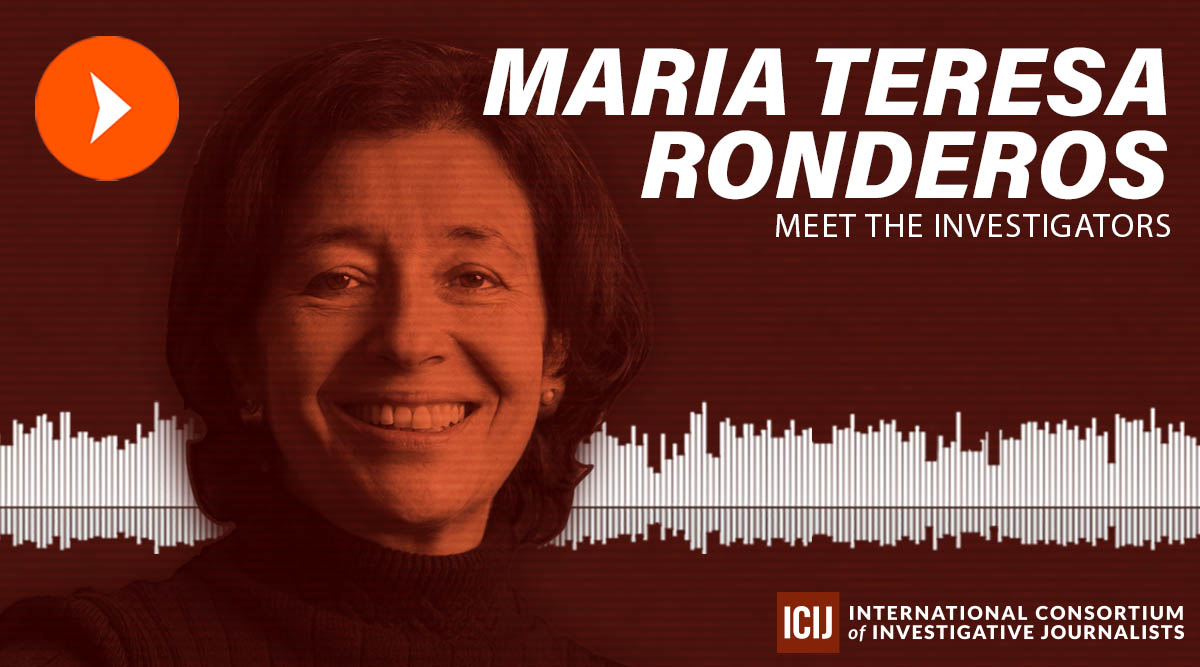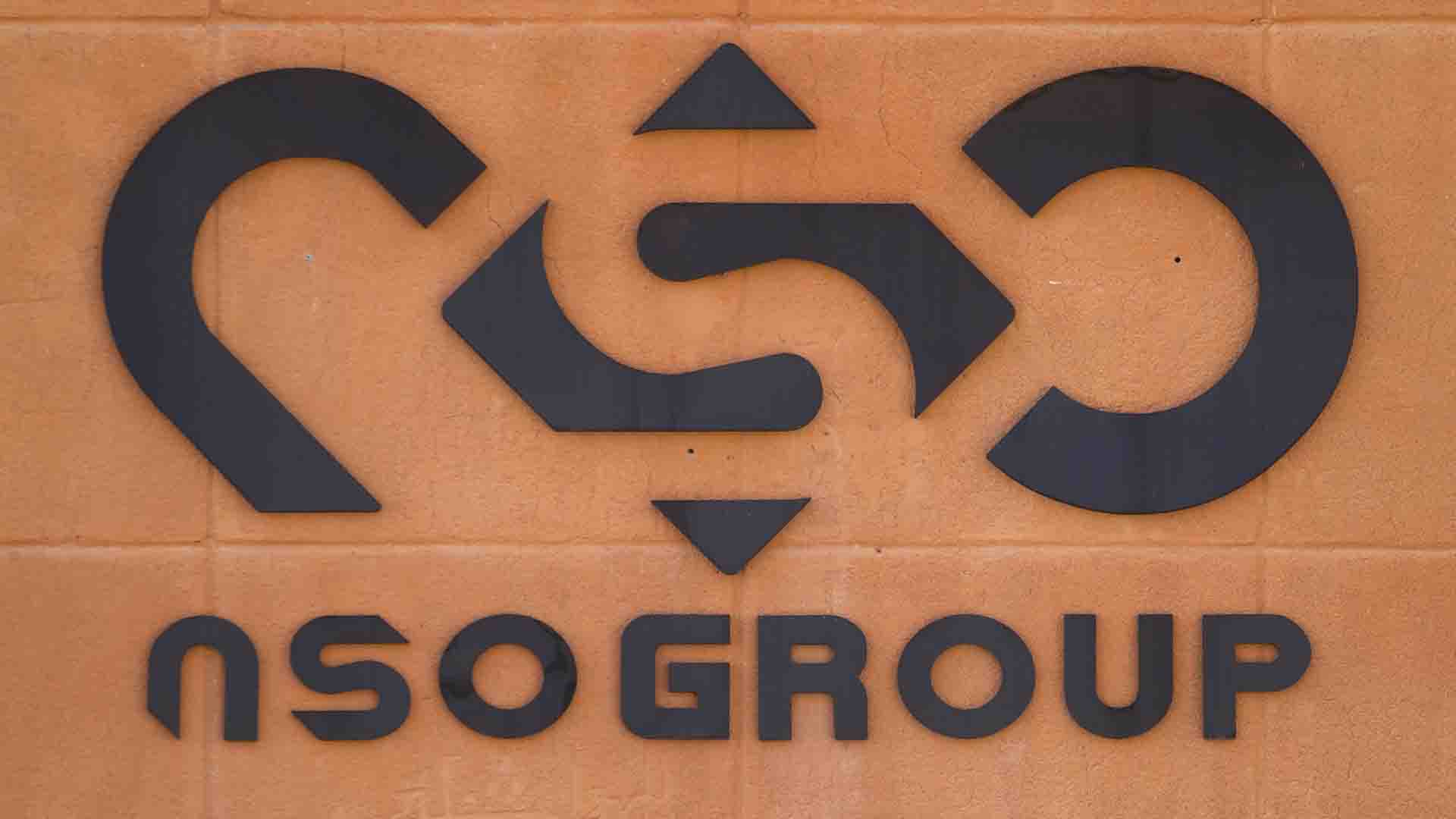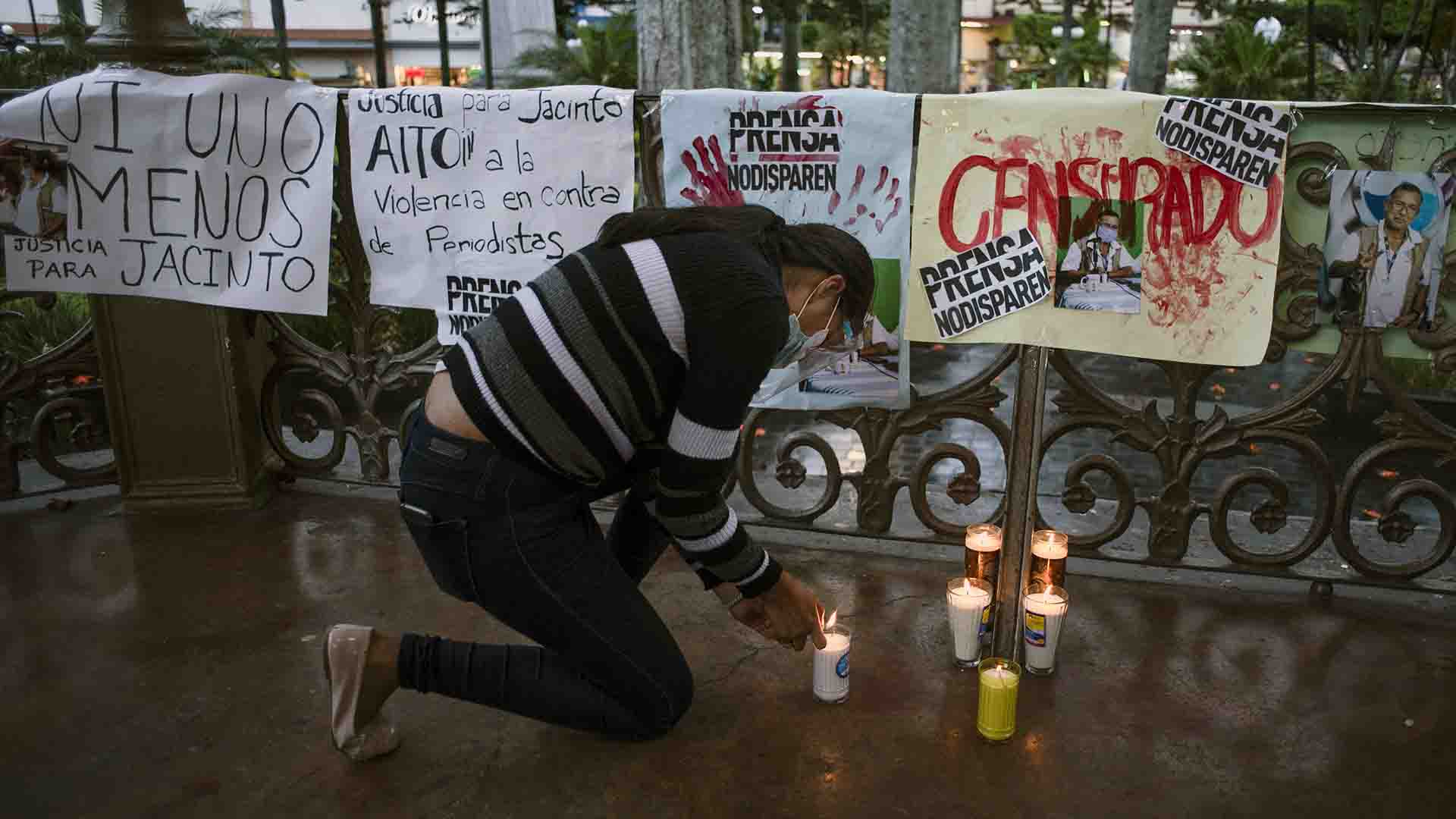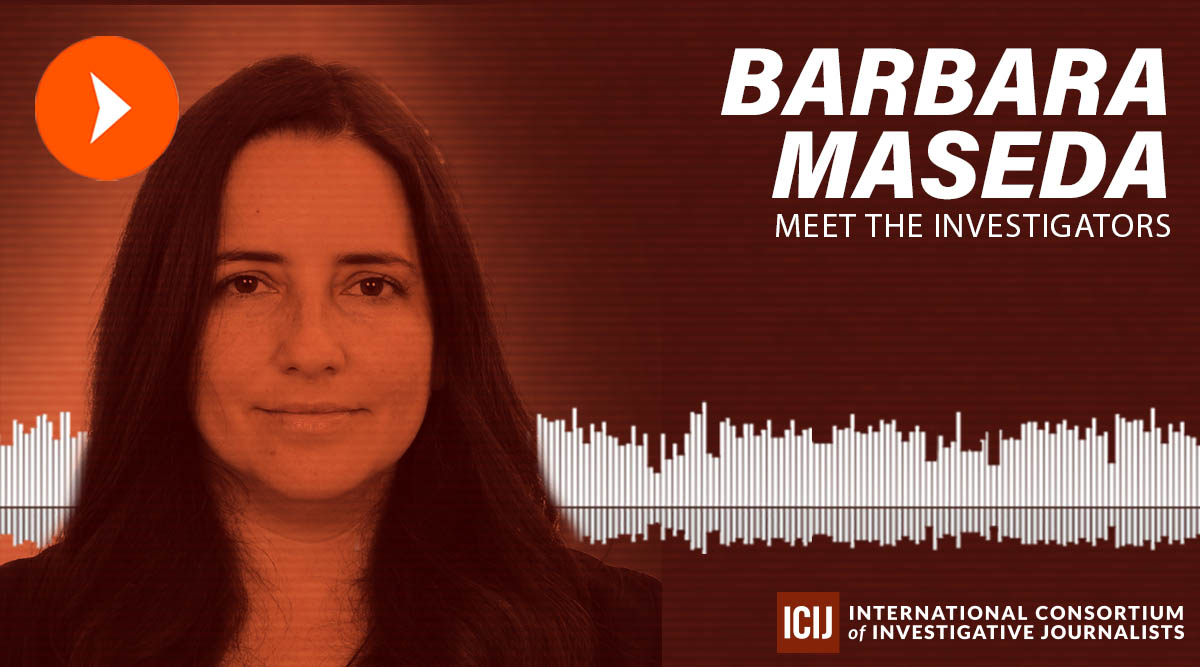MEET THE INVESTIGATORS
Finding courage — and true independence — in collaborative investigations
For our first episode of Meet the Investigators for 2022, we’re taking you back to the beginnings with Colombian reporter Maria Teresa Ronderos, who worked on ICIJ’s first investigations 20 years ago, and describes collaborative investigations as like being addicted to “really good ice cream.”

The International Consortium of Investigative Journalists collaborates with hundreds of members across the world. Each of these journalists is among the best in his or her country and many have won national and global awards. Our award-winning monthly series, Meet the Investigators, highlights the work of these tireless journalists.
In January, we spoke with journalist Maria Teresa Ronderos, who has worked as an investigative reporter in her native Colombia as well as across Latin America for decades, including on ICIJ’s first investigations 20 years ago. She has founded news outlets, and has also worked for an organization dedicated to supporting journalism around the world with grants and donations. She is currently co-founder and director of the Latin American Center for Investigative Journalism (CLIP) and describes her experience working on collaborative investigations as a bit like being addicted to “really good ice cream.”
ICIJ’s award-winning Meet the Investigators series is emailed exclusively to ICIJ’s Insiders each month before being published on ICIJ.org, and is one of a number of ways we like to thank our community of supporters who are so integral to our independent journalism. You can join our Insiders community by making a donation to ICIJ. Thanks to all our ICIJ Members who have shared their stories with us, and to all our supporters for helping ICIJ continue its work.
TRANSCRIPT
Sean McGoey: Welcome back to the Meet the Investigators Podcast, from the International Consortium of Investigative Journalists. I’m your host, Sean McGoey, and I’m an editorial fellow at ICIJ.
2022 has finally arrived, and it’s a big year — ICIJ’s 25th anniversary. So we’re starting the year off by talking to a Colombian journalist who not only worked on the Pandora Papers investigation, but partnered with ICIJ on its very first project.
Maria Teresa Ronderos: My name is Maria Teresa Ronderos. I am the director and co-founder of the Center for Latin American Investigative Reporting, which is [also called] CLIP.
McGoey: Maria Teresa has done almost everything that you can do in the world of journalism. She’s worked for print, broadcast and digital news outlets as a reporter and editor. She’s founded media organizations and worked with a group that funds independent journalism across the globe.
We talked about attacks on press freedom in the wake of the Pandora Papers, the pact between colleagues that led to her latest venture, and how investigative reporting is like ice cream. You’ll probably notice a few times where her computer dings with an email or a notification from WhatsApp — I think that’s actually quite fitting, because in many ways that’s the sound of the modern newsroom in action.
Here’s my conversation with Maria Teresa Ronderos.
I’d like to start with the Pandora Papers. When I spoke to some of my colleagues at ICIJ for a previous episode of the podcast, one of the things that came up was the large number of prominent figures from Latin America showing up in the data: heads of state, government ministers, powerful businessmen. What’s your perspective on why that might have been the case?
Ronderos: Well, in a way, it’s expected because two of the providers for offshores were based in Panama [Alemán, Cordero, Galindo & Lee and Overseas Management Company] and a lot of the documents came from those two providers.
[But] it’s not a coincidence that Latin America is the most unequal continent in the world. And it is unequal because a lot of rich people in Latin America don’t like to pay taxes. In some of our countries, income before taxes is better distributed than income after taxes, which [are] supposedly the instrument that the state has to distribute wealth. Why? Because the richer people are hiding their taxes, and the poor people can’t hide them, so they have to pay them. That’s one of the reasons.
The other one, of course, [is that] we’ve had a scourge for many, many years of all kinds of illegalities around narcotraffic, [like] money laundering through fake exports or imports. This is also a way to hide illegal money, or money of bad origins. Some of that money was actually tied to shady deals that public officials were doing — receiving money in dark places so that they wouldn’t be caught.
McGoey: One of the people who shows up in the files is the head of the tax authority in Colombia. What kind of message does it send that the person who is responsible for collecting taxes is actually taking advantage of these structures that can allow people to avoid paying?
Ronderos: Of course, he denied it. And previous heads of the DIAN, which is the local tax collector, went out and defended him very strongly, which was very surprising to a lot of people. But the fact remains that he was the head of tax for Bogotá when he created this offshore company and [an] account in Cyprus tied to that offshore. So you wonder, “Why is the head of tax in Bogotá doing this?”
Of course, I’m not accusing this man of doing anything wrong, because I don’t know. But certainly, the moral authority is not there. It’s a big damage to the institution of the DIAN, which had been becoming more and more credible in the last few years.
McGoey: The Pandora Papers was not Maria Teresa’s first time working with ICIJ. She started her reporting career as a freelancer in Argentina, then worked on in investigative documentary series in Colombia. But her first real dip into the world of investigative journalism came 20 years ago as part of ICIJ’s very first project.
Ronderos: The first ICIJ story [I worked on] really opened my appetite for doing what we call today investigative reporting — exposing hidden things that are of public good. The first story was about cigarette smuggling. I happened to have the luck to find some letters of a disgruntled smuggler who had fought with his uncle and and was sending letters to the ministry of Colombia saying, “Look, this guy is collaborating with the smuggling of cigarettes,” so we had actual proof apart from the data and the documents of the company. But those times when we find all the documents, we had to [make] these packages and send them by DHL, because there [were] no platforms to share them or anything.
McGoey: Maria Teresa’s work on the Big Tobacco Smuggling project sparked a desire to delve further into the world of investigative journalism that’s informed the last 20 years of her career.
Ronderos: It’s like eating ice cream. Once you’ve eaten really good ice cream you don’t want to go back to the bad ice cream. Having really outstanding investigative reporters to work with and getting into these humongous stories makes you so hooked that you just want to keep doing [them].
McGoey: After the Big Tobacco Smuggling project, Maria Teresa worked on investigative exposés for various outlets in Colombia. While she was at Semana, one of the most prestigious magazines in the country, she led investigations into abuses by private corporations.
Ronderos: But then Colombia became more and more violent and things were really, really nasty. I started to dig much deeper into the crimes of war and into the way that big companies were getting away with having their mining projects on land that was taken from people by killing them and displacing them forcibly.
So I devoted a lot of years of my life [to] a project that I created with a team of journalists, which was called “Open Truth” — Verdad Abierta. We spent like six or seven years [on] this project, specialized on these crimes, and then a book came out of that.
“When you feel you have a fraternity and it’s having your back, you become more courageous and you can have no fear in being really independent. I think that’s why it’s so important, these kinds of collaborations.”
McGoey: What you’re describing is a career that’s really been built on collaboration, whether it’s something like Verdad Abierta that’s concentrated on one specific area or a sprawling cross-border project like the Pandora Papers. I just read that one of the Nieman Journalism Lab’s predictions of how journalism will evolve in 2022 is that multinational collaborations will become even more prominent. Is that something you see happening?
Ronderos: I think this is already happening more, and it will happen [even] more. Corruption or massive violations of human rights or massive damage to the environment — it’s already transnational. It doesn’t happen in one country. Latin America has very common problems, and the governments have very common flaws — and everything crosses borders. Banks, religions, mining corporations, tax evasion, everything.
The other thing that I think is super important [is that] it’s becoming very dangerous to do investigative reporting exposing corruption or entrenched interests in places. And when you publish together, this protects you from censorship, it protects you from physical abuse or legal harassment or that kind of thing. It may be that you [can’t] avoid it completely, but it’s harder for somebody when you see that it’s an avalanche of journalists [publishing the same stories].
McGoey: That safety in numbers certainly has not stopped governments from trying to abuse journalists for their reporting. We’ve seen many attempts to discredit or punish journalists who reported on the Pandora Papers, including several in Latin America. What stands out to you about these attacks on press freedom?
Ronderos: CLIP collaborated for Pandora Papers with the Honduran team and with the Costa Rican team. In the case of the Honduran team, the moment we published the stories, the National Assembly got together and approved these changes to the money laundering law, which basically included journalists and civil society activists as people who could be investigated for money laundering when they received international cooperation. And this was signed by the current president of Honduras. So you think “Oh my god, this was a direct retaliation for the publication of [the] Pandora Papers.” It worries you terribly.
I think there is a kind of disease infecting Latin America, which is the virus of authoritarianism, and more and more cases of governments creating laws and policies to restrict — or to be able to persecute and abuse — journalists and media. A lot of retaliation against media [comes] through social networks, attacking journalists [or] anybody who criticizes the government or authorities. Plus we have the old problems of criminals attacking journalists in Latin America, which is also true — Mexico has had a record of journalists being killed in the last year.
So I do think it’s a very difficult time for journalists in our part of the world, and the more we stick together, the more we publish together, the more we investigate together, the better we can still do our job [and] not be silenced — but also not feel lonely.
McGoey: “Lonely” is a really interesting word there. Can you tell me a little bit more about what you mean by that?
Ronderos: I think when a reporter feels lonely doing this kind of work, it’s very difficult when they are under attack, and [feel] like “Why am I doing this? I’m completely alone.” When you feel you have a fraternity [with you] and it’s having your back, you become more courageous and you can have no fear in being really independent. I think that’s why it’s so important, these kinds of collaborations.
McGoey: At Open Society Foundations, Maria Teresa ran the Program on Independent Journalism, which provides funding for many journalistic organizations, including ICIJ, and supports freedom of expression around the world. But after four years, she was ready to return to her roots as a journalist and came home to Colombia to start CLIP — a story that begins with an agreement made among friends.
Tell me about the “Pact of Prague,” as you refer to it on your website.
Ronderos: It was [with] Marina Walker, [who] was at the time [an] editor of ICIJ, and Giannina Segnini, who is very well known [to] ICIJ — she’s a professor at Columbia University [in] the data journalism master’s program. I was working for Open Society Foundations in London, and we met in Prague for a workshop that we organized for Hungarian and Venezuelan journalists, who were facing very similar kinds of daunting problems in their countries in terms of authoritarian regimes.
We started saying, “Wouldn’t it be nice [if] we had [a] Latin American organization that we could go back home and run it?” And then we said, “Okay, the pact is that anybody who leaves their job first, they have to take this on.” I left OSF at the end of 2018 because I wanted to go back to journalism, and they called the pact on me [and] said “You have to take this on.” They were very adamant about it, together with Emiliana García, [who] was also one of the founders of CLIP.
Between Giannina and Emiliana, they found the seed funding, and then we started this adventure with [an] informal couple of days of meetings [at the] end of May [or] beginning of June of 2019. And then we published our first story in August. And since then, we’ve published with about 70 partners, all over Latin America mostly.
McGoey: In that time, CLIP has produced several award-winning reporting projects, including “Migrants from Another World,” an investigation into immigrants from Africa and Asia that traverse Latin America in an attempt to make it to the U.S. and Canada.
What advice would you give to young journalists who are considering doing investigative work?
Ronderos: It’s difficult, but it’s very rewarding. The one advice I would give you, which I’ve only done in the last few years — and I should have done it all my career — is keep your contacts and your sources very well organized. Update those contacts. Have clarity of who [you have] talked to for every investigation you’ve made. That’s a wealth of information. For many years, I was very disorganized, and every story was ended, then [I was] off to the new story. And I always think, “Oh, what I could have done if I had [kept] all these sources close.”
McGoey: There’s one more thing that I’d be remiss if I didn’t mention. In November, you were awarded the Simón Bolívar National Journalism Award for your career achievements. I know it’s not really in the nature of journalists to brag about their accomplishments, but what does it feel like to be recognized for doing work that has had a sustained impact over many years?
Ronderos: Oh, it was wonderful. I was moved to tears. It was completely surprising. When they called me, I thought they were calling me [to ask] if I wanted to be a jury [member] for the Simón Bolívar Awards!
It was a wonderful opportunity to be thankful publicly about all the people that I have worked with, because I think a career is not made of you, of what you do. It’s made of all the people you work with and how they enabled you to achieve such wonderful and beautiful adventures. Because that’s what it has been — my professional life has been just one adventure after the other. This has been quite a privilege and luxury, and it was such a delight to be able to recognize publicly that this is what collective work does.
María Teresa Ronderos | Gran Premio a la Vida y Obra de un Periodista #PNPSB_46 pic.twitter.com/i8swKyX4GM
— Premio Simón Bolívar (@PNPSimonBolivar) November 16, 2021
McGoey: That’s a beautiful place to wrap up. Maria Teresa, thank you very much for joining me!
Ronderos: Thank you, Sean.
McGoey: That was my conversation with Maria Teresa Ronderos. We’re grateful for her and for all the journalists that share their stories on the Meet the Investigators podcast.
Meet the Investigators is a production of the International Consortium of Investigative Journalists. This episode was hosted, produced and edited by me, Sean McGoey, with help from Hamish Boland-Rudder.
We’d love to hear from you too — use the hashtag #MeetTheInvestigators if you’re posting about this episode on social media, and email us at social@icij.org if you have any feedback. If you want to support the work that ICIJ and journalists like Maria Teresa are doing, head to icij.org/donate or drop us a line at contact@icij.org.
As a personal note: Because my fellowship at ICIJ is coming to an end, this is my last episode of Meet the Investigators. While I’m sad to be leaving, I’ve had an incredible time working on this podcast for the last year, and don’t worry — you’re going to get to meet an incredible group of investigators in 2022.
Thank you very much for listening; we’ll talk to you again soon!
If you’re a fan of our Meet the Investigators series, please consider making a donation to support ICIJ. Not only will your donation help support our work with journalists like Maria Teresa, but as an ICIJ Insider, you’ll also receive sneak previews, access to exclusive chats with reporters and behind-the-scenes content like this delivered straight to your inbox. Donate today, and support independent investigative journalism.


